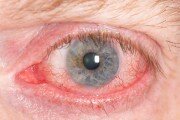7 Natural Ways To Help Prevent Cataracts
Cataracts are the leading cause of blindness in the world. The World Health Organisation (WHO) estimates between 16 to 20 million people worldwide are currently blind as a result of this condition. Proteins in the eyes lens unravel, tangle and accumulate pigments that cloud the lens and eventually lead to blindness. The normal process of ageing can make the lens harden and turn cloudy making cataracts more common in older people.
Taking care of the problem
One of the first preventative measures you should take is to reduce your exposure to free radicals. So quit smoking if you currently do and wear suitable sunglasses (those marked with CE the European Commission seal of approval which provide total UV absorption) when you go out in strong sunshine.
Taking antioxidants can also help limit the damage caused by free radicals. Take vitamin C (1,000mg daily), beta carotene (10,000IU a day) and vitamin E (400IU a day).
In addition, make sure you lower your sugar intake, as it contributes to the abnormal clumping of proteins inside your lens. One food to include more of in your diet, assuming you don’t have a nut allergy of course, is hazelnuts. In an animal study, Turkish researchers from the Department of Ophthalmology, Military Medical School in Ankara, found that hazelnuts helped overcome cataract symptoms. They concluded that: Since hazelnuts have no known harmful effects on healthy cells, they may be beneficial in the fight against human cataracts.
The following supplements have been found to lower the risk of cataracts. These may be particularly helpful if the condition runs in your family, as many researchers now believe there is a genetic link.
—
1. Carnosine is a compound found naturally in your body, particularly in muscle tissue. It not only prevents free radicals from attacking the lens of your eye, but also helps dissolve any abnormal material that has accumulated there, thereby helping to reverse some of the damage that has already been done. The recommended dosage is 100mg capsule taken two to three times a day.
2. N-acetyl-carnosine is available in eye drop form (brand name Re-Vital Eyes). It has been found to be effective in both the prevention and treatment of cataracts. The recommended dosage is two drops, three times a day.
3. Inositol is part of the vitamin B complex and is an important constituent of your eye tissue and low levels have been linked to the formation of cataracts. The suggested dosage is 500mg to 1,000mg each day.
4. Curcumin is a common ingredient in curries and a well-known antioxidant. Indian scientists from the Physiology Division, Osmania University, Hyderabad, have discovered that curcumin, taken in conjunction with another antioxidant, vitamin E, can significantly reduce the risk of cataracts.
5&6. Lutein and zeaxanthin are essential eye nutrients. They protect against the formation of cataracts and also reduce the risk of developing macular degeneration, which affects a particular part of the retina, causing partial loss of vision. Lutein is used in capsule or tablet form, and the dose is up to 20mg a day. Another way to boost your supplies of lutein and zeaxanthin is to use bilberry extracts in capsule form, 150mg a day.
7. Emblica officinalis is a plant that contains natural chemicals called tannoids, and is most commonly used in the treatment of diabetes. In an animal study, Indian researchers from the Biochemistry Division, National Institute of Nutrition, Hyderabad, found that tannoids extracted from emblica were able to prevent the formation of cataracts. The scientists believe that this remedy may be particularly beneficial for diabetics suffering from cataracts. This is because emblica helps reduce specific toxins, such as aldose reductase, which are often present in high amounts in diabetic patients. The recommended dosage is 250mg a day.
—
Did you find this information useful?
Then why not get more expert health recommendations just like this delivered direct to your inbox?
"It is truly refreshing to read a newsletter on the topic of alternative medicine which is scientifically based and reviewed by professionals..." - Robert Sinott
We respect your privacy and will never share your details with anyone else.Disclaimer: Bear in mind the material contained in this article is provided for information purposes only. We are not addressing anyone’s personal situation. Please consult with your own physician before acting on any recommendations contained herein.
Sources:
Mol Vis. 2004 Mar 12;10:148-54
Indian J Exp Biol. 2006 Sep;44(9):733-9
Ophthalmol. 2006 Sep-Oct;9(5):311-6
Curr Eye Res. 2007 Feb;32(2):95-103
Life Sci. 2006;78(20):2343-57
Med Sci Monit. 2005 Aug;11(8):BR300-4
- Comments (3)
- Facebook Comments (0)
Comments are closed.











Thank you for the article. I’m particularly interested in how curcumin and other antioxidants can help alleviate cataracts.
Great Article and very informative for those cataract suffers looking for a natural remedy.
For someone who is suffering with cataracts, I really appreciate the information in this article and will try some of the recommendations.